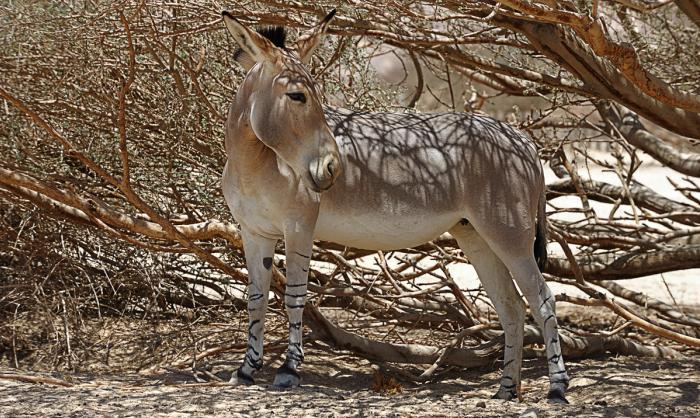
“The current range of the African Wild Ass in Ethiopia and Eritrea is approximately 23,000 km², and the total number of directly observed African Wild Ass in Eritrea and Ethiopia is roughly 70 individuals. Based on the scientific method of “Maxent modeling” there may be as many as 600 individuals in these two countries, but this figure is a very rough extrapolation from more intensely studied areas. The number of mature individuals is approximately one-third of the population. Hence the maximum number of mature individuals might be 200.”
“In Ethiopia, in the last 50 years there has been a greater that 95% population decline and in the last 30 years the African Wild Ass has been extirpated from roughly 50% of its range. In Eritrea, the population is stable and slowly increasing. However, it is difficult to predict population trends into the future due to the threat of climate change and the potential for more frequent droughts. Population stability and growth is limited by access to water and forage and recurrent drought. Currently, African wild ass may use the same pastures as local livestock, in particular cattle. Lack of access to forage can reduce nutrition and potentially impact foal production and survival. This means that potentially this species could be lost in the next 50 years.”
“If the population is to be preserved, it is critical that females with foals have access to water and good pastures. They should preferably be able to live in protected areas, so that they avoid competing with cattle for limited food resources. But this will depend on the support and cooperation of the local pastoralist communities and scientifically based management in Eritrea and Ethiopia.”
Patricia D. Moehlmann, PhD, Co-Chair IUCN/SSC Equid Specialist Group